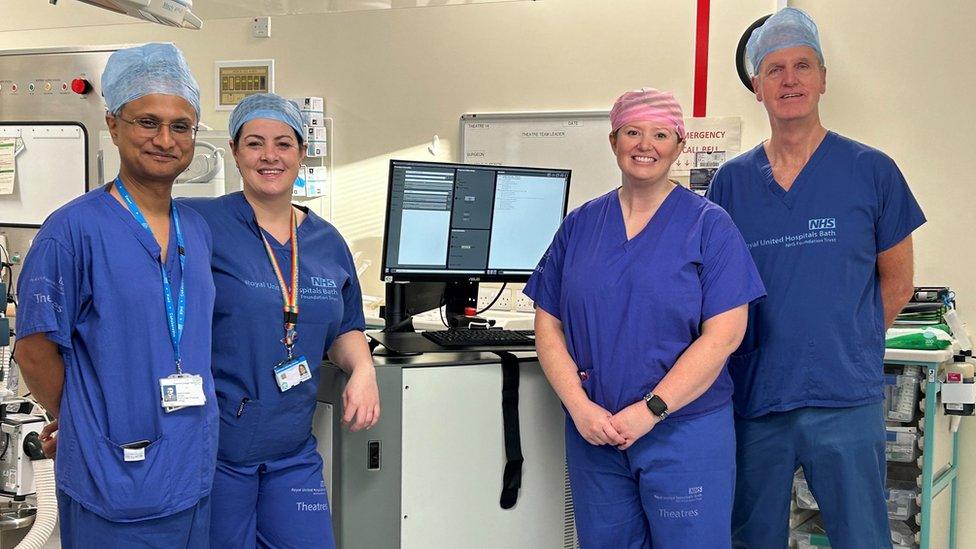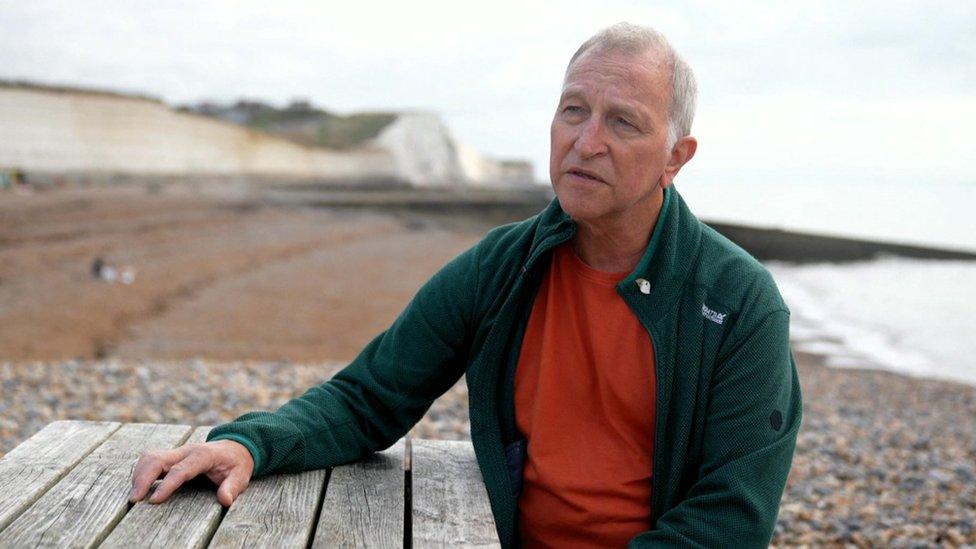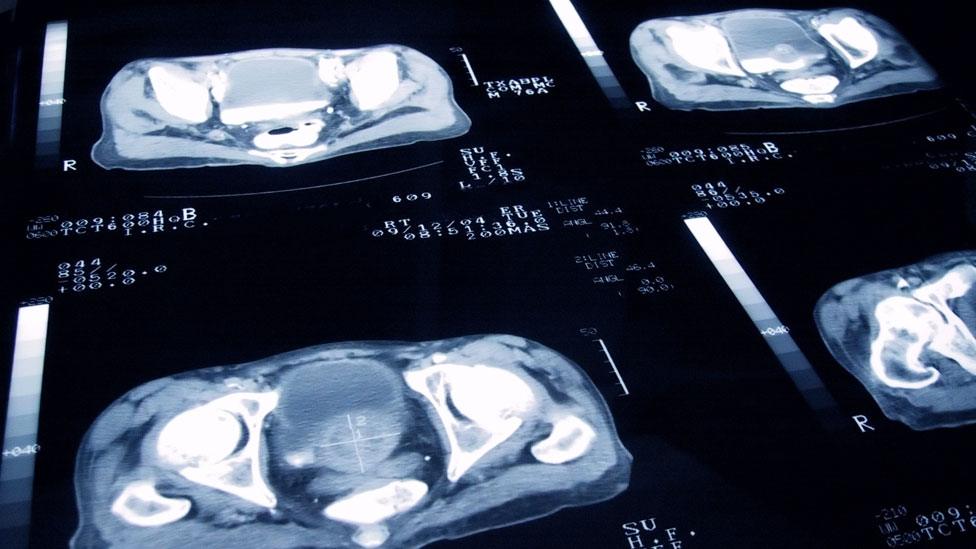RUH first in West to use non-invasive cancer treatment
- Published

The team behind the new treatment, with RUH consultant Miss Lucy Simmons, second on the left.
The first non-invasive prostate cancer treatment has been performed in the West.
The Royal United Hospital in Bath has used the high-intensity focused ultrasound (HIFU) treatment on two patients.
The treatment targets the area where the cancer is without needing incisions or radiation, so there is no damage to other tissue.
It was funded by Prost8 and the UK Focused Ultrasound Foundation.
RUH consultant Miss Lucy Simmons, a urologist, was mentored by world leading expert Prof Hashim Ahmed from Imperial College ahead of using the treatment.
She explained that "it uses really powerful soundwaves to heat and destroy the prostate cancer cells by using a special probe".
"That does mean that men can have the treatment in the same day - they come in the morning, home that afternoon. The recovery times for it are much quicker than the standard treatment," she added.
Miss Simmons said she was "proud" to introduce the treatment to the hospital, but added it was important to stress "HIFU will be the right route for some men, but not all".
The treatment has been used in London for some time, and Miss Simmons said it was "nice to get it out of the capital".
Men are also "less likely to have urinary leakage afterwards and it's better at protecting erectile function", she added.
'Brilliant addition'
Newly-diagnosed men in the region who think they may be eligible for the treatment can speak to their clinician about referral.
The hospital's chief executive, Cara Charles-Barks, called it a "brilliant addition" to the treatments they can offer patients.
Miss Simmons explained that a diagnosis of prostate cancer "can be a challenging time for men and their loved ones", but also that it can be tricky to spot.
"It's quite challenging in that in the early stages it can not have very many symptoms at all," she said.
"Quite a lot of men present with normal urinary symptoms for ageing males. It can just make it a bit more difficult to pee."

Follow BBC West on Facebook, external, X, external and Instagram, external. Send your story ideas to: bristol@bbc.co.uk, external
Related topics
- Published23 October 2023

- Published29 September 2023
